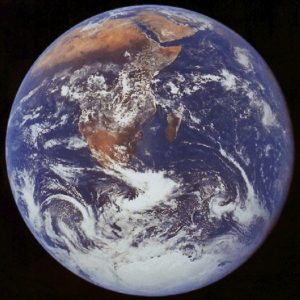Earth Sciences and Ecology
Introduction
By Mark Ciotola
First published on May 8, 2019. Last updated on May 8, 2019.
This course views the Earth as a living planet. The Earth has an active geologic interior, oceans and atmosphere. Understanding how the Earth and its systems function provides tremendous insight into natural factors affecting our lives, from why it gets cold in the winter to where the minerals are obtained to build our civilization.
The Earth’s ecosystem places a crucial role in sustainability. We breath the air, drink the water and are dependent upon sunlight for food. Therefore it is good to refresh one’s memory with a few facts about it. The Earth Sciences (often called Geosciences) include Atmospheric Science (Meteorology), Geology and Oceanography.
Ecology is the relationships between living organisms and their relationships with the environment. Ecology studies energy and matter flows, and the dynamic relationships between entities an ecosystems. Food webs and the changes of populations over time are important matters in ecology.

Earth as seen from space by Apollo 17 crew (credit: NASA)